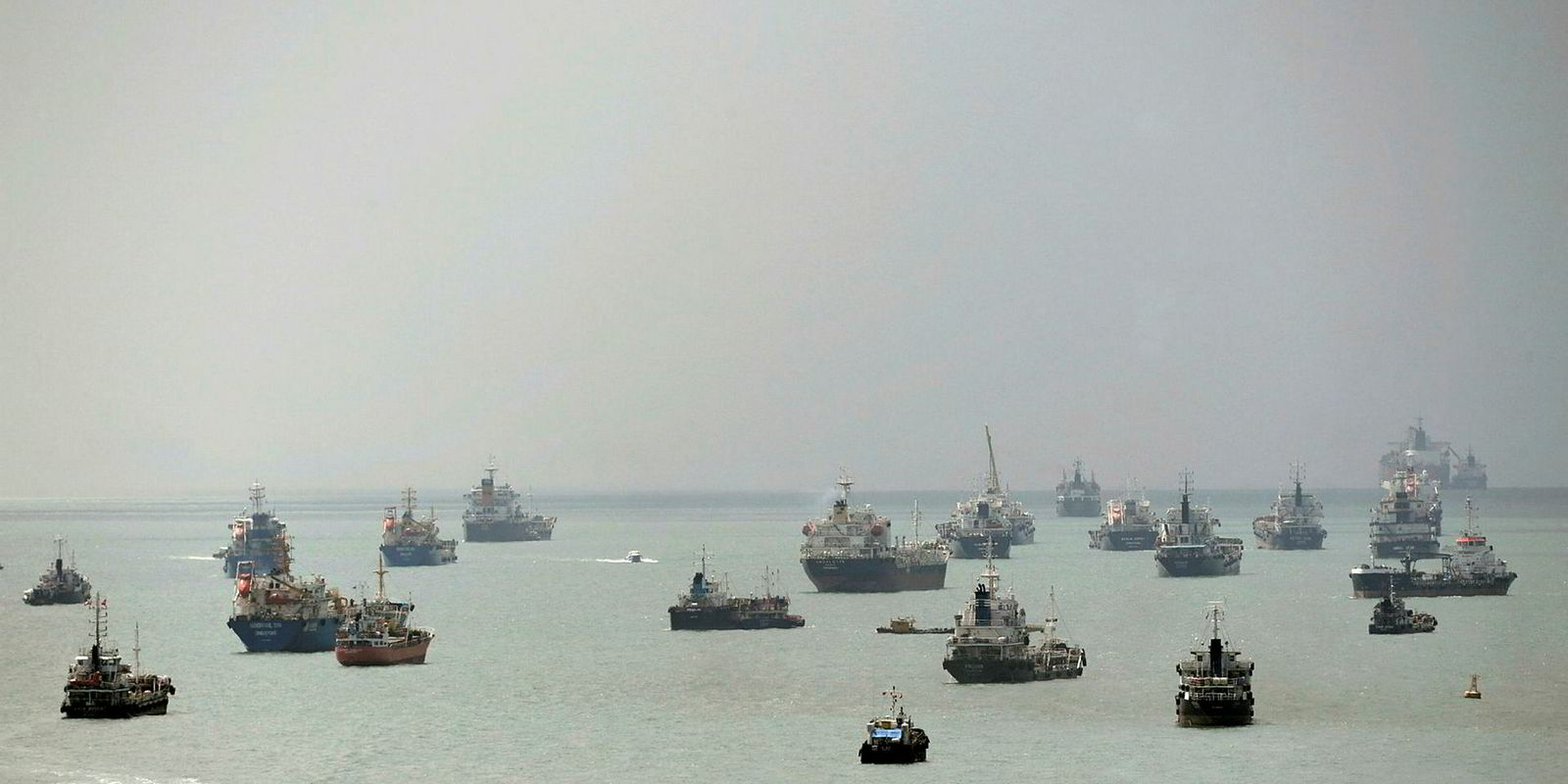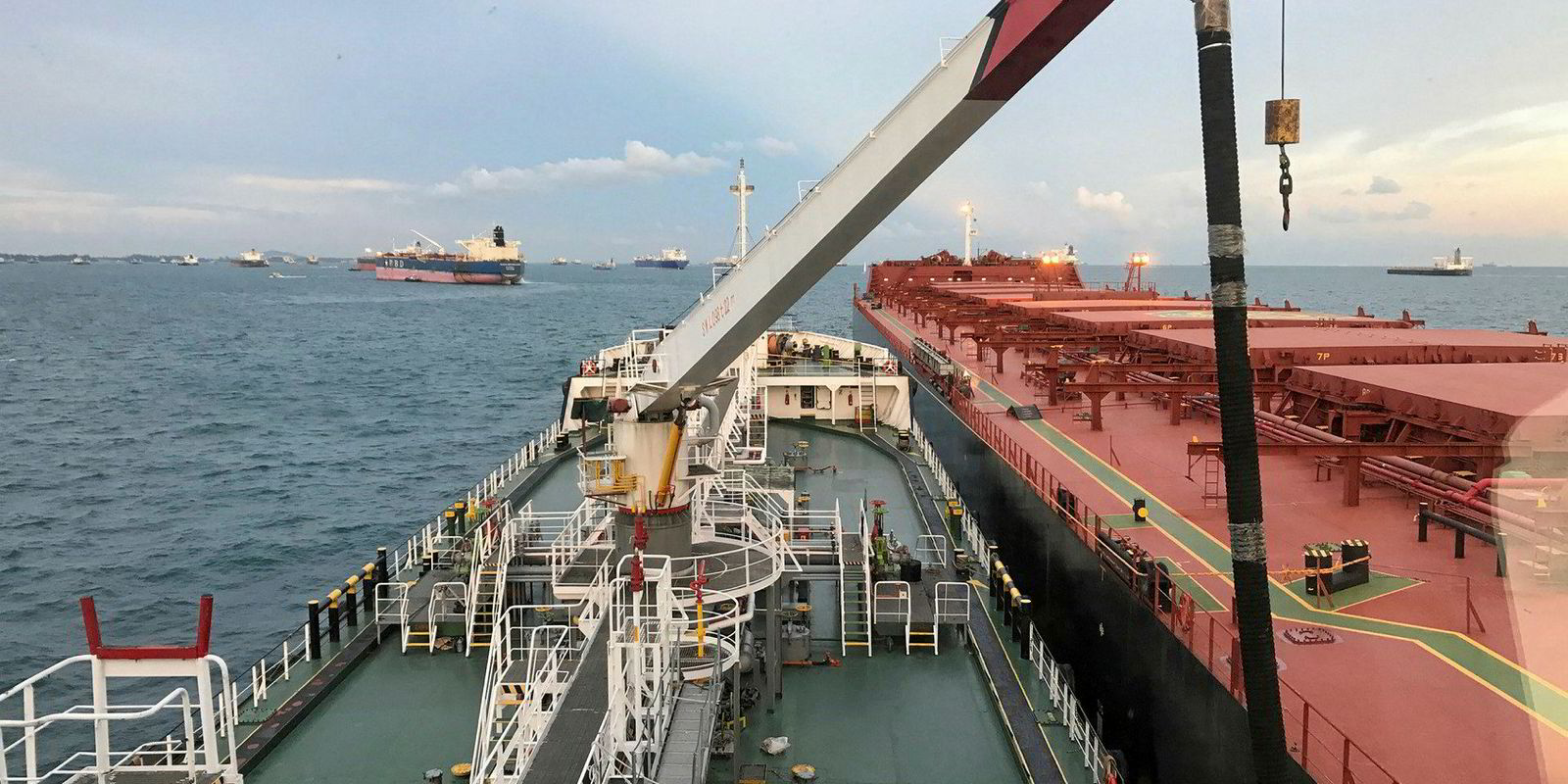Shipowners are becoming increasingly concerned that new low-sulphur blended fuels, which will enter the market in 2020, might be even more prone to contamination than fuels currently available.
Fears over fuel quality were reignited when about 200 ships suffered damage to their main engines, and total breakdown in some cases, after taking on contaminated bunkers in Houston and Singapore earlier this year.
Fuel tests by Veritas Petroleum Services (VPS) found traces of 4-Cumylphenol, which is expected to have been the cause of the incidents. The compound went undetected by the ISO 8217 marine fuels standard test and was only uncovered after much deeper forensic analysis.
Some argue that post-2020, low-sulphur fuel oil will be even more prone to such contamination.
'Cutter stocks'
The theory is that low-sulphur blended fuels will require components taken from what is termed "cutter stocks" to meet the sulphur and consistency levels required under ISO.
Typically, cutter stocks are used to reduce the viscosity of low-sulphur fuels, but some components may have adhesive qualities that can cause blocked fuel pumps. It is argued these newly sourced cutter stocks are likely to bring contaminants into the blends. DNV GL has identified as many as 48 different components that could go into the mix when producing low-sulphur blended fuels.
Fuel expert Adrian Tolson, a senior partner of advisory firm 20|20 Marine Energy, said owners need to take fuel purchasing more seriously and to be better informed.
Transparency
“As far as the purchasing process for owners in terms for fuel quality, truthfully there is no way to do this in the post-2020 world other than to understand your suppliers’ supply chain and only going with suppliers that can explain theirs and show transparency,” he says. “Owners are seeking this out to a certain degree — and will do more next year — as they try and write term contract supply for post-2020 fuels. This may mean owners will need to pay a premium in order to ensure quality.
Shipping is the only industry where the [fuel oil] supply chain is not properly regulated
“Having said all this, things can and do go wrong. So owners need to be responsible and aggressive in testing all fuels they receive, and stay aware of the specification risks and any standard specification challenges.”
VPS is recommending owners take more sophisticated fuel tests and buy only from recommended suppliers to try to avoid the problems that occurred in Houston and Singapore.
Others have argued that governments need to clamp down on marine fuel quality.
Anna Ziou, policy director at the UK Chamber of Shipping, said at an event in London last month: “Shipping is the only industry where the [fuel oil] supply chain is not properly regulated.”
Force action
Many industry bodies are arguing for the fuel quality standards outlined in the International Convention for the Prevention of Pollution from Ships to be put into shipping’s main safety convention, the International Convention for the Safety of Life at Sea, to force governments to act.
However, the International Bunker Industry Association (IBIA) — the marine fuel industry’s main association — has said that the focus on 2020 and the emergence of low-sulphur blended fuels is misleading.
IBIA director Unni Einemo argues that shipping has always run on blended fuels. Making 2020's low-sulphur blends work is simply a matter of making sure the right quality standards are applied.
“With low-sulphur fuels, the blend composition will change as refinery residuals that make up the biggest share of bunkers today are typically too high in sulphur," she says. "This may cause some teething problems before bunker fuel producers have identified the 'recipes' that work best, but it should not open the door to including cutter stocks with contaminants.”







